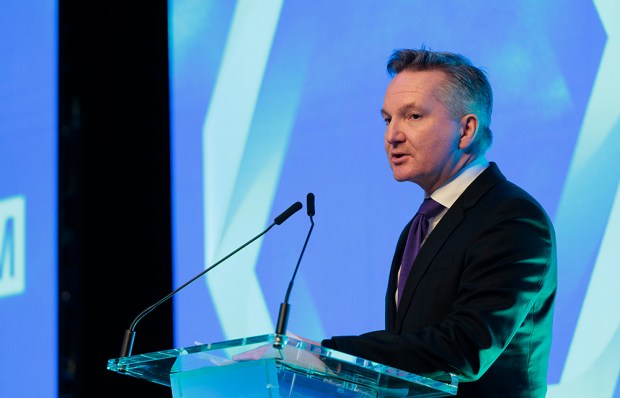It is not going away. Corporate leaders are increasingly stepping outside their legal requirement to serve the best interests of their companies (and thereby the shareholder owners) by sticking their noses into controversial social issues. Mounting pressure from activist groups, with agendas often far distant from the best interests of most shareholders, is evident in resolutions being put up, for example, at bank AGMs demanding the ending of funding of any fossil fuel companies, not just coal. Weak boards, particularly those fearful of social media blackmail and consequent political assault, readily give way. As last week’s Speccie editorial showed, Westpac directors who enthusiastically promoted causes like same-sex marriage, diversity, inclusion, gender equality and climate change, would have been better employed ensuring the good governance that should have prevented the bank’s prosecution over 23 million money laundering transactions. And that followed the banking royal commission’s revelations that indicated bank boards seemed more intent on aspects of ‘corporate social responsibility’ than on running an honest business. Now that banks have been accused of having focussed too heavily on satisfying the needs of shareholders, they have ‘purified’ their purpose in life; for the ANZ ‘Our purpose is to help shape a world in which people and communities thrive… Keeping pace with the expectations of our customers, employees and the community [shareholders omitted!]’. And NAB avoids mentioning its owners with ‘Our mission is to be Australia’s leading bank, trusted for exceptional service’.
Despite so much of their attention being directed to explaining away their bank’s royal commission misdemeanours, bank CEOs still found time to rate highly in the survey by Streem of 2019’s most outspoken leaders on social issues. Bankers gave us the benefit of their advice on climate change, domestic violence, equal opportunity, mental health, human rights, indigenous issues, sexual harassment and various other social causes. This fad spreads way beyond the banks and infects much of Australia’s corporate life. As former Federal Court judge Peter Graham protested at the recent annual meeting of BHP, ‘The concept of corporate social responsibility is a myth. Social issues such as the wisdom of amending our country’s constitution are no part of the company’s business’. Noting that as the royal commission ‘did not change corporate law or introduce any concept of corporate social responsibility, the duty of directors to act bona fide for the benefit of the company as a whole has not changed’. Beyond behaving lawfully and ethically ‘a company should not find any purpose beyond that of serving its owners’. He went on to deplore ‘the temerity of corporations telling us how the fabric of Australian society should be changed’.
It is not only the external activists pushing these social agendas on boards; many directors are internal proselytisers. Retiring BHP CEO Andrew Mackenzie believes it is incumbent on corporations when appropriate ‘to lend a voice in the debate on the critical social issues of our time’. Asserting that it is now not enough for companies to operate well, pay taxes and look after customers and suppliers, ‘Companies must have a broader view… [as] a pre-requisite of long-term shareholder value. This is not about corporate activism, just good business’.
Most of Australia’s leading corporations have such a wide spread of shareholders that they are self-perpetuating private bureaucracies with boards effectively answerable to no one. The success of activists in imposing their agendas will inevitably rise as this ownership vacuum is filled by the ever-increasing significance of superannuation funds (generally hidden in nominee companies). As Paul Keating said when initiating his union-oriented compulsory superannuation scheme, he was offsetting the lower physical power of declining union membership with the enhanced financial power of their industry super funds. If the Morrison government unwisely proceeds with the scheduled increase in compulsory super from the present 9.5 to 12 per cent of wages, this will enhance the prospect of a union-oriented industry fund voice becoming by far the dominant one in Australian boardrooms.
Got something to add? Join the discussion and comment below.
Get 10 issues for just $10
Subscribe to The Spectator Australia today for the next 10 magazine issues, plus full online access, for just $10.
You might disagree with half of it, but you’ll enjoy reading all of it. Try your first month for free, then just $2 a week for the remainder of your first year.














Comments
Don't miss out
Join the conversation with other Spectator Australia readers. Subscribe to leave a comment.
SUBSCRIBEAlready a subscriber? Log in